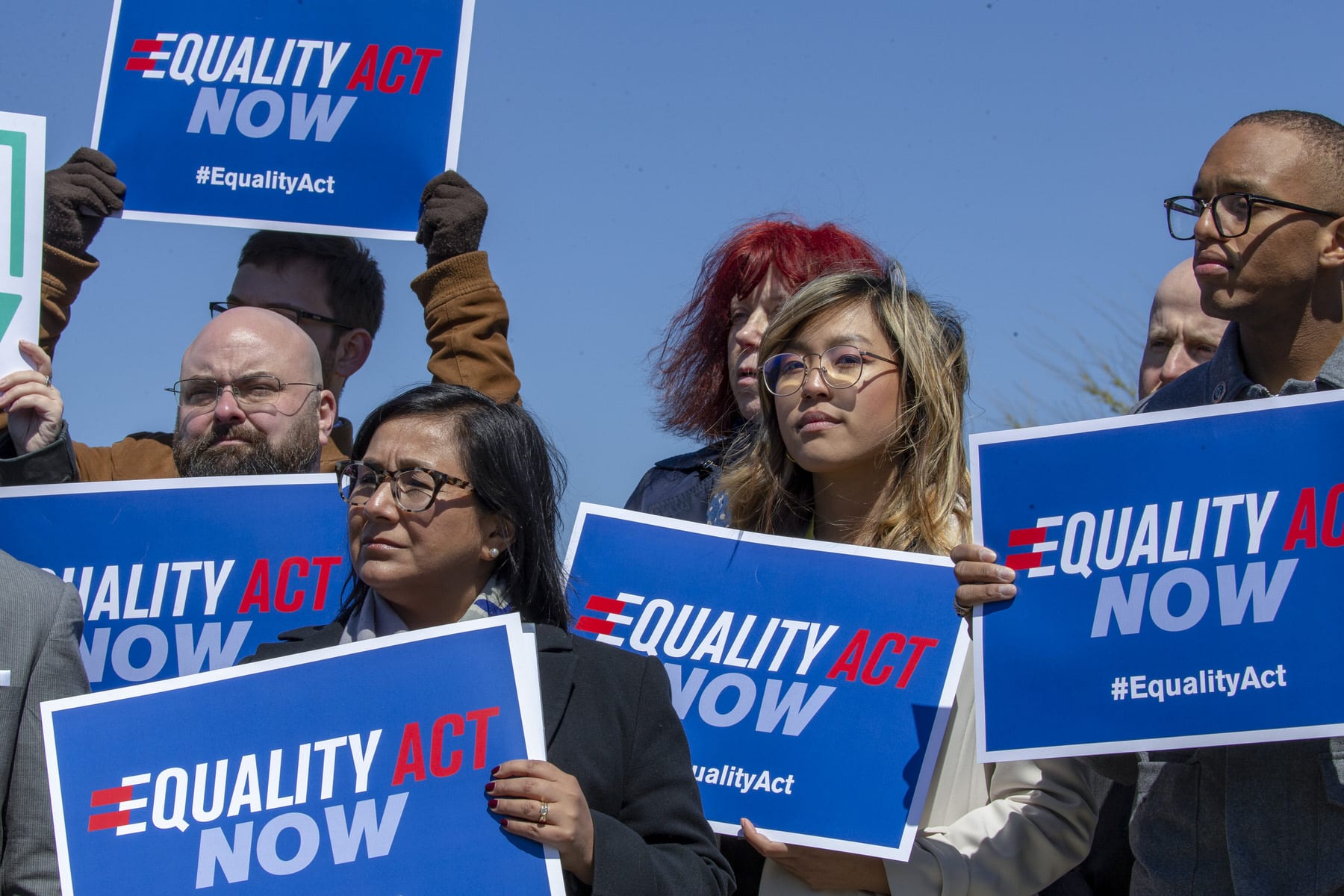Even in 2021, women can still be charged more for the same short haircut than a man sitting next to her, or pay more for dry cleaning because of her gender. In many states, it’s legal for Uber drivers to cancel a ride if they see a customer is Black.
A landmark bill that would grant LGBTQ+ Americans non-discrimination protections would fix that, according to a report released Tuesday.
The Movement Advancement Project, which tracks the progress of LGBTQ+ equality in policies nationwide, says the Equality Act would do more than bar discrimination on the basis of sexual orientation and gender identity in housing, public accommodation, education and employment.
“It also does these other things that I think many people are surprised to learn that federal law doesn’t do,” said Naomi Goldberg, deputy director of the Movement Advancement Project. “Federal law doesn’t prohibit discrimination in retail stores based on race, it doesn’t prohibit discrimination in any place of public accommodation based on sex.”
If passed, the Equality Act would update and expand the Civil Rights Act of 1964 to include gender identity and sexual orientation protections. Only 21 states and Washington, D.C., have LGBTQ+ public accommodation laws on the books, leaving just under half of LGBTQ+ Americans living in places without laws protecting them from being denied service at a hotel or restaurant.
In June, the Supreme Court ruled that LGBTQ+ people could not be fired for their sexual orientation or gender identity, a ruling that the Trump administration ignored and the Biden administration began enforcing via executive order last week. But in most states, it’s still legal to refuse to serve LGBTQ+ people in restaurants.
But the Equality Act also would expand protections for groups already covered in the Civil Rights Act of 1964, said Sunu Chandy, legal director of the National Women’s Law Center. That includes rights for people of color, religious groups, immigrants and women.
“I think the focus was on what was at stake in that moment,” said Chandy of the 1964 law. “And now our concept of public accommodations and spaces is just much broader.”
Chandy points out that the original law didn’t include discrimination in retail stores or taxis in its protections. The Equality Act would fill those gaps. Chandy says that applies to “individuals who have particular religious head coverings or are otherwise marked as being connected to a minority religious faith.”
“In the last four years, that sort of hate crime and really explicit discrimination has really increased in a way that’s appalling,” Chandy said. “We need to make sure that those rights are also enshrined in federal law, and not dependent on local law.”
National Women’s Law Center is among a spate of feminist and LGBTQ+ groups co-signing onto Tuesday’s report. Other groups include the Center for American Progress, Lawyers for Civil Rights, National Center for Transgender Equality, and the National Partnership for Women and Families.
A version of the Equality Act was first introduced in 1974 by Rep. Bella Abzug. But 2021 is the first year that many advocates think the bill has a real chance at passage now that Democrats control both chambers of Congress.
President Joe Biden has vowed to pass the act within his first 100 days in office. To do that, he will need strong bipartisan support as a Senate bill needs 60 votes to pass. That will require convincing some Republican senators that the bill, which would require bakeries to provide wedding cakes to same-sex couples if they make them for heterosexual couples — a situation that has come before the Supreme Court — doesn’t infringe on religious liberty.
But Tuesday’s report, in laying out the ways that religious groups will be further protected, may be an incentive for Republicans to sign on.
“What we know is that people of faith do experience discrimination, particularly people of minority faiths,” Goldberg said. “These protections are really important to make sure for example, a Muslim woman wearing hijab is not kicked out of a retail store.”





